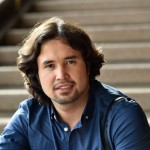OPINION: Muslims just as much victims of extremists

Opinion piece by Barat Ali Batoor
There is a word that is often used in the west to describe harsh or uncharitable situations.
The word is ‘un-Christian’ – which I take to mean actions or words that go against the basic teaching and values of the Christian faith.
To me, as a Hazara refugee from Afghanistan and as a Muslim, the actions of ISIS and other extremist groups – and including the stabbing attack on the two policemen in Endeavour Hills this week – is ‘un-Islamic’.
The Islam I know preaches love, tolerance, kindness and mercy. What ISIS and the rest of these extremist groups stand for is unclear but it is not what I understand to be at the heart of mainstream Islamic communities.
Most ordinary Muslims in Australia would unequivocally condemn what Numan Haider apparently did in attacking the police officers and in publicly supporting ISIS; and this despite what some Islamic community leaders are saying – or indeed failing to say.
What I hope most Australians will come to realise is that the overwhelming majority of Muslims in this country are just as much potential victims of these extremist groups as anyone else.
Many of us already are their victims. I was forced to leave Afghanistan because I am Hazara and I worked as photographer for the US and their allies in the battle against the forces of extremism.
In the case of the Hazara people, we have been targeted by militant, fundamentalist Islamic groups in Pakistan and Afghanistan for decades – and we have been repressed and discriminated against for centuries.
As mostly Shia Muslims, we have been the targets of violence by extremist Sunni Muslim groups such as the Taliban and Lashkar-e-Jhangri.
More than 1500 Hazaras have been killed and 4000 maimed over the past decade in Pakistan. Not a single perpetrator has been brought to justice in that time.
We just don’t know how many more Hazaras have been killed or wounded by the Taliban and other groups inside Afghanistan.
The other risk to my community is a backlash against all Muslims here in Melbourne.
Acts of hatred against people perceived to be Muslims will only make matters worse and have the potential to drive more people to listen to the lies and propaganda being spread by the extremists.
Negative comments directed towards people who look like they are from the Middle East are inherently divisive and they are alienating. This can create a cycle of mistrust and result in people who look vaguely the same being lumped together and viewed as a threat.
Many people in the west fail to understand that not all Muslims interpret Islam in the same way.
The truth is that just like any other religion, extremists make up a very small proportion of the Muslim population. And the extremists direct most of their hatred towards other Muslims.
In Syria and Iraq, the vast majority of ISIS’ victims are Shia Muslims. This has led to the rise of Shia militants who have also committed atrocities.
The conflicts in the Middle-East at the moment are a complicated mix of sectarian warfare fuelled by a long standing proxy-war being waged by some of the most influential nations in the region.
But we in Australia should be vigilant about what is happening among small groups of extremists within Australia and the authorities are right to act to protect public safety.
The rise of ISIS and other groups is likely to become extremely problematic for the Hazara people and other moderate Muslim groups in the region.
This is one of the reasons that I myself and every other Hazara I know in Australia is happy and grateful to be here. For us Melbourne has been a very welcoming place and we appreciate its acceptance of diversity.
I know from my own community and from my work as a community worker with settlement agency AMES that the Hazaras – who make up the largest group of Afghans in Australia – and every other Muslim group here want to contribute to the society that has embraced them. We all want to live peacefully and be able to build our lives and look after our families.
The issue of home grown terrorists is a difficult one. Many young Muslim people grow up caught between all pervasive western culture and their family ties to Islam – sometimes creating a void in their values system.
This can leave them vulnerable to radicalisation; either from preachers and advocates of violent jihad operating online, or from people here seeking to influence young impressionable minds.
Perhaps that is what happened to Numan Haider – who incidentally is not a Hazara.
Whatever the case, Australian authorities are right to crack down on these influences; they are like cancers that left unchecked will spread with disastrous results.
But, on the other side of the ledger, perhaps more needs to be done to engage disaffected youth vulnerable to firebrand proponents of violence. Many of these youngsters live in disadvantaged areas with high unemployment and possibly see the world and any sense of opportunity passing them by.
But in the end, violence and radicalism should not be tolerated in a civilised society and in the Islamic communities that I know, they have no place.
BARAT ALI BATOOR IS A WALKLEY AWARD-WINNING PHOTOGRAPHER AND AMES COMMUNITY WORKER WITH MELBOURNE’S AFGHAN COMMUNITY













